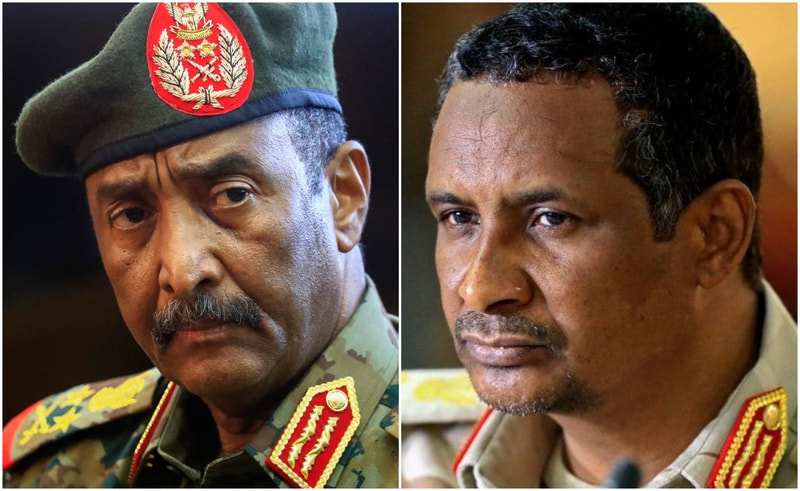
Sudan’s armed forces and the paramilitary Rapid Support Forces have agreed a 72-hour ceasefire following what US secretary of state Antony Blinken described as “intense negotiations” amid deadly clashes in the country.
On Tuesday, the Sudanese army said in a statement that following a “Saudi-American mediation to cease the fighting in the country and to alleviate our citizens and for humanitarian reasons the armed forces have agreed to a 72-hour armistice effective from midnight tonight, on the condition that the rebels commit to stopping all hostilities”.
The RSF said in its own statement: “We renew our absolute commitment to the declared humanitarian truce for a period of 72 hours, which we agreed to and we are committed to all its conditions in order to open humanitarian corridors for citizens.”
But it was unclear whether the pause would hold, especially as most communications are down in Khartoum. The Sudanese army and the RSF had previously announced a ceasefire to coincide with the Eid holiday marking the end of Ramadan on Friday, but heavy fighting continued throughout the weekend and Monday around the capital, Khartoum.
More than 400 people have died, mostly in Khartoum, after fighting erupted more than 10 days ago between the Sudanese armed forces, led by de facto president Abdel Fattah al-Burhan, and forces commanded by his opponent, Mohamed Hamdan Dagalo. Known as Hemeti, Dagalo is Sudan’s vice-president and commander of the RSF.
The US and UK evacuated diplomats over the weekend while other countries such as France and Germany also rescued some civilians.
UK forces were on Monday scoping their potential evacuation options for remaining citizens as ministers came under pressure to do more to rescue the more than 4,000 British passport holders who remain trapped.
Defence insiders said a British team had landed with reconnaissance staff in Port Sudan to provide prime minister Rishi Sunak with options to rescue UK nationals. HMS Lancaster, a British frigate, was in the Red Sea in case it was needed, they said.
Sunak chaired a meeting of the government’s Cobra emergency committee on Monday — the seventh such meeting — in a sign of his determination to show he has a grip on the situation.
Concern over the UK’s response mounted after it emerged that the British ambassador Giles Lever and his deputy were both on leave when fighting broke out in Khartoum. When hostilities started, Lever resumed work in London.